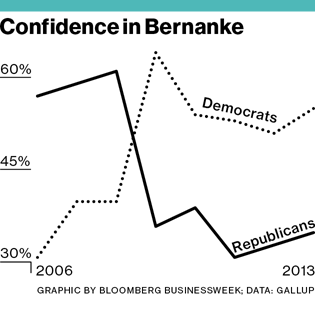An Overexposed Fed Makes the Chairman’s Job Tougher
< < Go Back
Can the Federal Reserve regain its dignity? The summer-long sniping over the selection of a new chairman feels like bad reality television, with Janet Yellen anonymously accused of lacking gravitas and Lawrence Summers pronounced by one senator as unfit to mow his yard. Last year a bill to audit the Fed passed the Republican-led House 327-98 despite warnings from Chairman Ben Bernanke that the auditing of monetary policy decisions could produce a “nightmare scenario” of political interference.
All this is going to make the next Federal Reserve chairman’s job harder. Although the central bank is a creature of Congress, it has long cultivated a reputation for technocratic independence that helps it carry out essential but unpopular missions such as raising interest rates and bailing out banks. As if its normal work weren’t tough enough, now the Fed also has to try to restore its above-it-all image.
The Fed brought this on itself, at least in part. The extreme measures it took in 2008 and 2009—emergency lending, bailouts, deep rate cuts—saved the U.S. economy from an even deeper downturn, but they alarmed people who thought the bank was overreaching. Former Fed Chairman Paul Volcker said in 2008 that the bank extended itself “to the very edge of its lawful and implied powers” in arranging the emergency takeover of Bear Stearns by JPMorgan Chase.
Republicans went from swooning over Bernanke to stomping on him. In April 2008 Bernanke had the confidence of 61 percent of Republicans and 40 percent of Democrats surveyed in a Gallup poll. A year later 64 percent of Democrats and only 36 percent of Republicans were confident of Bernanke’s economic performance. That probably had something to do with the Fed’s policies and a lot to do with having a Democrat in the White House, says Gallup Editor-in-Chief Frank Newport.
The Fed will likely have a harder time showing it can stay above politics if President Obama picks Summers to succeed Bernanke next February. Yellen, the Fed’s No. 2, probably could slide into the job with a minimum of fuss, even though she is on the bank’s dovish wing. Summers raises hackles, in part because of his outsize personality but also because he was a top insider during Obama’s first term, when he was director of the National Economic Council. A Summers-led Fed would inevitably be perceived, especially in conservative quarters, as a political ally of the White House.
More From Bloomberg Businessweek:




